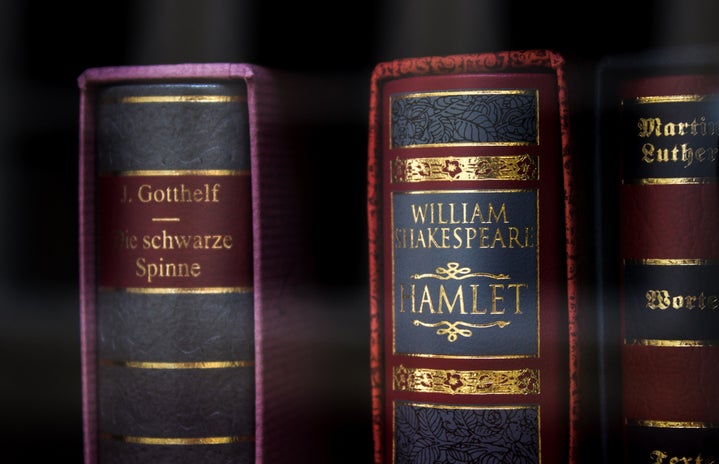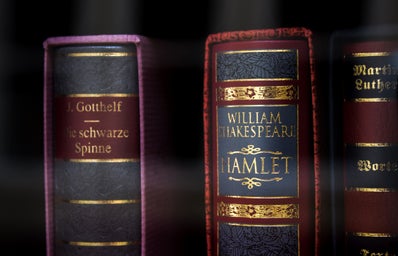Shakespeare’s beloved plays, Romeo and Juliet and Hamlet, have both been adapted more times than I can count on my hand, but some adaptations have awed me, while others have fallen flat. The adaptations that have stuck in my mind are Baz Luhrmann’s Romeo + Juliet, Kenneth Branagh’s Hamlet, and Michael Almereyda’s Hamlet.
What works so well for me about these adaptations is their modern settings (at least relative to the original source material, in the case of Branagh’s adaptation). Romeo + Juliet and Almereyda’s Hamlet follow a very similar dynamic, probably due to Hamlet coming out only four years after the former. These adaptations take on a modern setting, bright colors, and popular actors, while still keeping the original Shakespearean script. This glamorized version of Shakespeare’s plays works for me because it is so different from the originals. This is purely personal preference, but I do not care about watching people in an Elizabethan setting. If that were the case, I would probably just reread the play because the Elizabethan lifestyle offers no bright glamour and pizzazz. Quite frankly, it bores me. I would rather watch a less well-done version of Hamlet or Romeo and Juliet that is done differently than the original because the source material is so timeless that the story and its tropes are always being reused. In other words, I appreciate that the directors are having fun with the old material that they’re presented with. Giving it a new twist is so much more original than putting on the same play that people have been seeing for ages, like Franco Zeffirelli does with his adaptations of Hamlet and Romeo and Juliet. Almereyda and Luhrmann took leaps of faith with their colorful adaptations, and if in no other’s perspective, they’re at least great in mine.
However, for those who are unconvinced that these modern adaptations are effective and think they’re over the top, or even flat out bad, we turn our heads to Kenneth Branagh’s 1996 adaptation of Hamlet. Branagh does not go totally modern with his adaptation, but instead turns time forward to the Victorian era. This change effectively creates glamour and an overall pleasing aesthetic without the cheesiness that may come with a full modern, late 90’s look on the subject. This adaptation spotlights the pretty costumes and castles and makes up for this historic inaccuracy with a four hour runtime, creating an accurate and complete retelling of Shakespeare’s classic piece. Branagh’s Hamlet is the perfect balance between aesthetic viewing pleasure and Shakespearian loyalty that makes it a really effective adaptation. The movie’s four Oscar nominations including Best Screenplay, Best Costume Design, and Best Art Direction only further my point more.
When looking for adaptations, I usually gravitate towards the fun, especially with a source like Shakespeare. However, Kenneth Branagh brings an adaptation that works on all levels for those who don’t agree with my point of view on modern adaptations.



